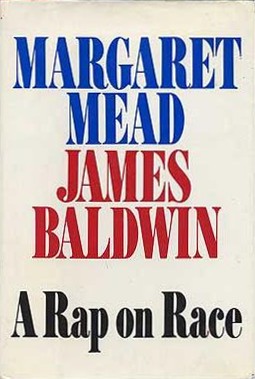
It’s been nearly 45 years since the legendary conversation between anthropologist Margaret Mead, a Museum curator, and author James Baldwin that would become the book Rap on Race. This month, a new production at the Public Theater is using the dialogue as a springboard to discuss race in 2014.
Directed by Anna Deavere Smith, the show features excerpts from two historic dialogues—including Mead and Baldwin’s—followed by an unscripted discussion with a contemporary focus.
For the performance on May 31, Museum Curator Rob DeSalle, an evolutionary geneticist, will be discussing race and contemporary science with Dr. Evelynn Hammonds of Harvard University and Dr. Victor Carrion of Stanford University.
Dr. DeSalle, who is co-author of Race? Debunking a Scientific Myth, recently answered a few questions about the science of race.
©AMNH/D.Finnin
How do biologists approach race?
Race is a really difficult biological term. There’s no objectivity to it. Defining a species is quite objective, and defining an individual is quite objective—though if you understand how many microbes are swimming in your body, you might not call yourself an individual. But objectively, getting to a definition of race based on genes or biology is impossible because it is not an "either-or" nor a statistical concept. The result of genetic research on “race” is that there is no biological basis for human races—good scientists have settled on that for decades.
What do you mean when you say that, biologically speaking, there’s no such thing as race?
Forty years ago, [evolutionary biologist] Dick Lewontin used blood group proteins and other proteins to come up with a really clear view of the biology of our species—and that really clear view is that we’re a very young species and, any way you want to stratify groups of people, there’s still more variation within the groups than between the groups. That’s stood up for 40 years. And more recently with the addition of genome-level data, the original conclusions made by Lewontin have been mostly corroborated. Most human geneticists would agree with his original view that we humans are a single biological entity, with no genetic basis for what we culturally call races.
The history of race in biology goes back to Carl Linnaeus’s creation of a biological classification system. What was Linnaeus trying to do when he began classifying humans into categories?
When Linnaeus first came up with his system, he named about five species of Homo sapiens, including a feral species raised by wolves, a ridiculous notion. He included a couple of mythological species because he wanted to get everything out there that he knew. But his classification of humans is derided today, and that is because he simply didn't use objective criteria to do it.
So did Linnaeus’s classifications cloud scientific approaches to race until the 20th century?
It did indeed, and actually Darwin pointed out in the Descent of Man that the scientists of his time recognized anywhere from two to 63 races of man, highlighting the subjectivity of a biological notion of race. But Darwin, who was an evolutionist, recognized from his travels that people were people and that their differences were superficial. He said something to the effect of, without further information, a natural historian would have to come to the conclusion that there are distinct species of humans on the planet. The important phrase there is without further information. And that further information is the fact that we can interbreed with each other.
Did the genomics revolution reawaken a latent interest in trying to determine the biological bases of race?
The reemergence of discussions about human races from a biological perspective usually occurs when a new technique comes about and people still have a racist hypothesis that they want to test with the new data. But it’s not good science. The most recent incarnation of this is with genome-level data, but again, careful examination of new genomic data does not change the genetic view of our species that Lewontin formulated 40 years ago.
So will we still be talking about the biology of race in the future?
It won’t make a difference in a few hundred years, or in the long run, because people are moving around so much and because we can do it with each other and we do do it—freely and copiously. We’re becoming a random mating population, quite different from the small, isolated populations of our ancestors.